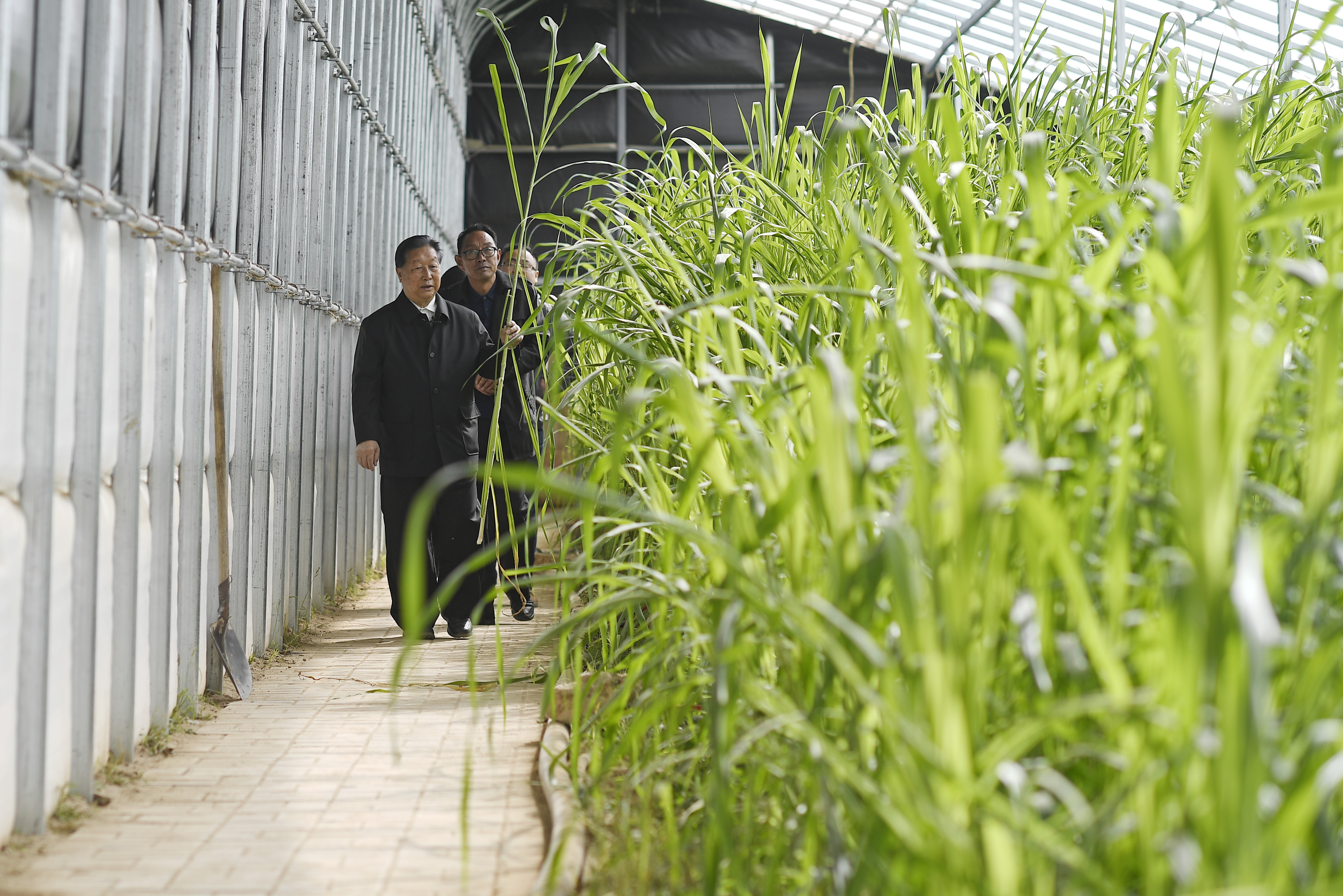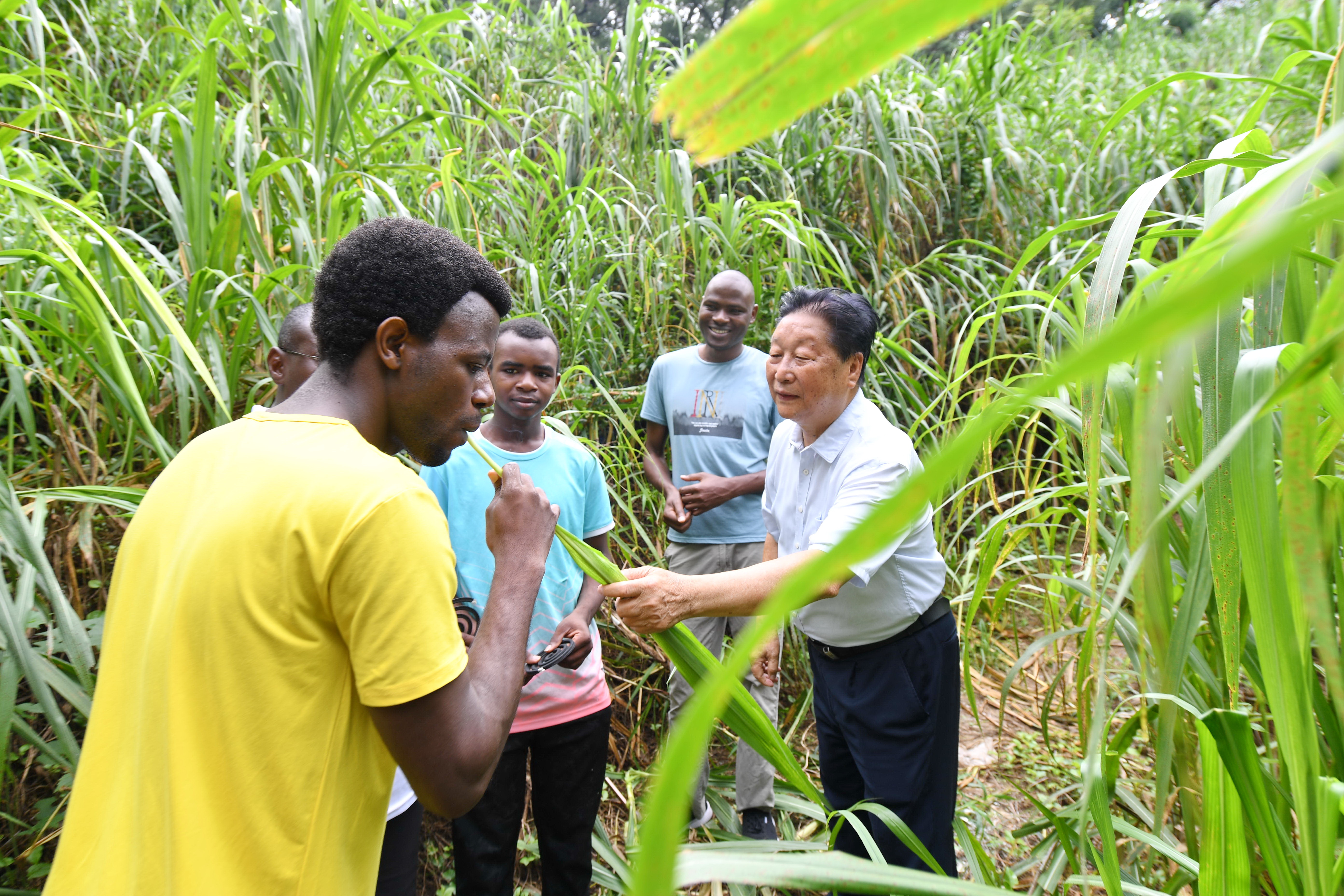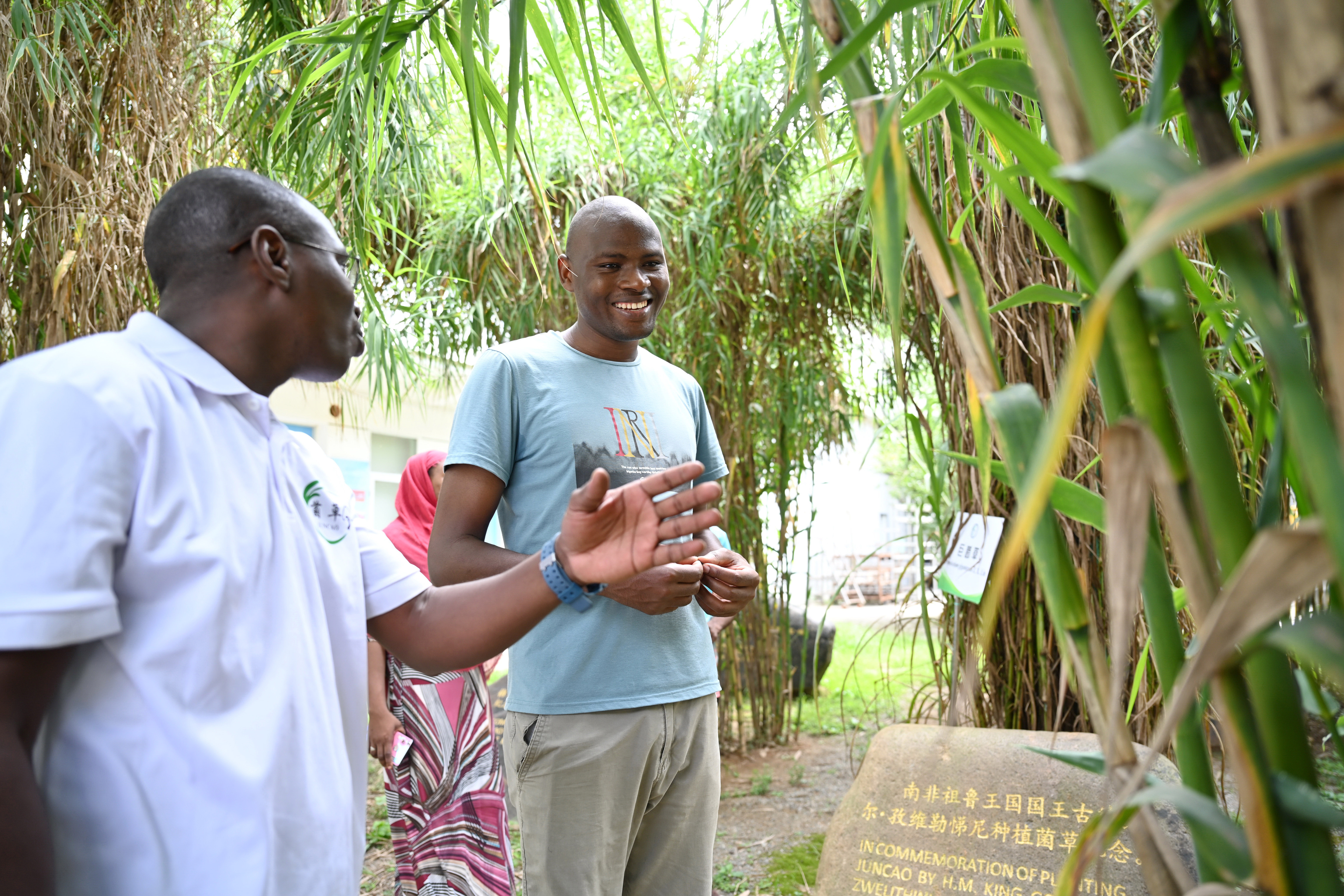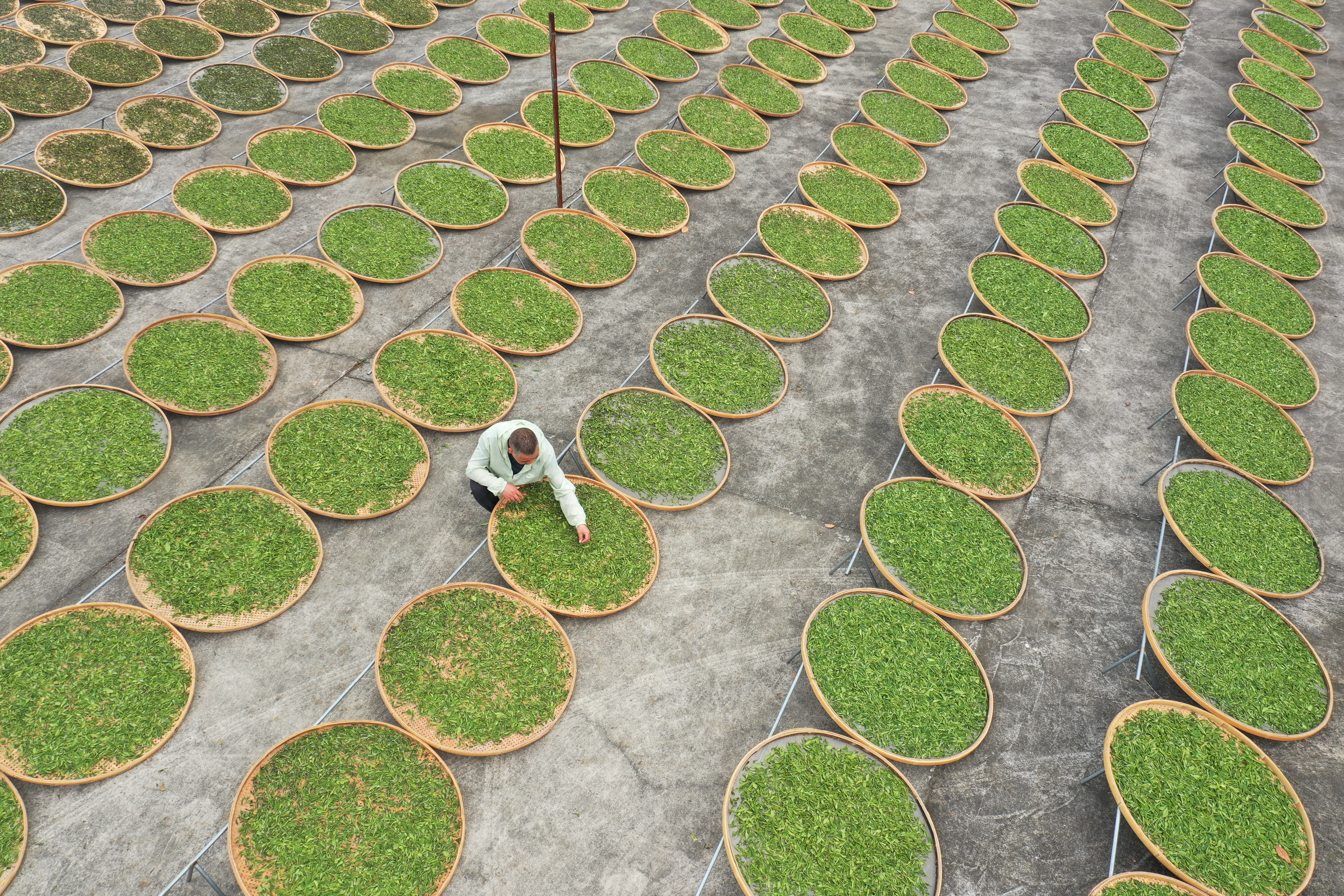Juncao Assistance Aids Sustainable Development Cooperation
Lin Zhanxi (front),chief scientist in the China National Engineering Research Center of Juncao Technology, is inspecting Juncao in a greenhouse in Ningxia Hui Autonomous Region on March 29. (PHOTO: XINHUA)
BY TANG Zhexiao
Chinese President Xi Jinping emphasized that he has long cared about the international cooperation of Juncao technology, in a congratulatory letter to the Forum on the 20th Anniversary of Juncao Assistance and Sustainable Development Cooperation.
Renowned as magic grass, Juncao comes from two Chinese characters meaning fungi and grass and is a method that uses herbaceous plant as substrate for growing edible and medicinal mushrooms.
Juncao technology is a unique technology developed in China, which contributes to agricultural sustainable development. It is not only a successful practice that China has explored in the process of promoting poverty alleviation, but also an important contribution to global sustainable development.
In 2001, the first China-aided Juncao technology demonstration base overseas was established in Papua New Guinea. So far, this technology has been expanded to more than 100 countries, bringing tangible benefit to tens of thousands of people.
PHOTO:XINHUA
Substituting grass for wood
The Juncao technology was invented in the 1980s by Lin Zhanxi, who is also chief scientist in the China National Engineering Research Center of Juncao Technology.
Edible fungi was an important industry for poverty alleviation in rural areas. However, with more and more trees cut down for fungi, the contradiction between fungi and forest became increasingly prominent.
Engaged in agricultural and forestry research, Lin began to think about the possibility of using grass to replace wood to cultivate fungi.
In 1983, Lin led a research team using wild herbs in Fujian to conduct relevant research. The work faced numerous difficulties. After persistent efforts, substituting grass for wood, also known as Juncao, finally succeeded in 1986.
Rich in nutrients, Juncao helps small-scale farmers to develop low-cost, commercial-scale mushroom cultivation. In addition, it also helps in combating desertification and can be used as food for livestock.
Over the years, Juncao technology has continued to deepen in the fields of grass fertilizer and ecological management, being widely promoted and applied at home and abroad, with remarkable economic, social and ecological benefits achieved.
PHOTO:XINHUA
Grass of happiness
The international cooperation of Juncao technology has played a vital role in promoting local development and people's well-being, and is generally welcomed by developing countries.
China-Fiji Juncao Technology Cooperation Project was established in 2014. Introduced from China, Juncao has been bringing tangible benefits to Fijians, as it not only helps develop a low-cost mushroom cultivation industry, but also produces cattle feed and minimizes soil erosion in the Pacific island nation.
Nearly 1,000 Fijian farmers and technicians have been trained over the past years. "I am happy that Juncao technology has opened my eyes and has helped me become a project technician after being trained twice in China since 2016," said Sunita Vikashni Lata, a technician working for the Juncao project for three years, adding that Juncao technology has a bright future in Fiji. China's development assistance provides not only materials and infrastructure, but also capacity building. According to Chinese Ambassador to Fiji Qian Bo, apart from the Juncao project, China also implemented the rice technical cooperation project to help Fiji ensure food security and promote the mechanization of agricultural production.
Pakistani Prime Minister Imran Khan has praised China's innovative Juncao technology and called China a role model for developing countries in poverty alleviation, "I commend China for sharing this beneficial technology with over a hundred countries, which has already benefited thousands of people across the continent for years," said Khan.
Over the past two decades, China's Juncao technology has sown its seeds in over 100 countries and regions in the world. Finding solutions to human survival and development through technologies, Juncao is a practical example of China building a community with a shared future for humankind.
Xi emphasized that China is willing to work with relevant parties to continue to contribute China's wisdom and solutions to the implementation of the United Nations 2030 Agenda for Sustainable Development and make Juncao technology a "grass of happiness" that benefits people in developing countries.




